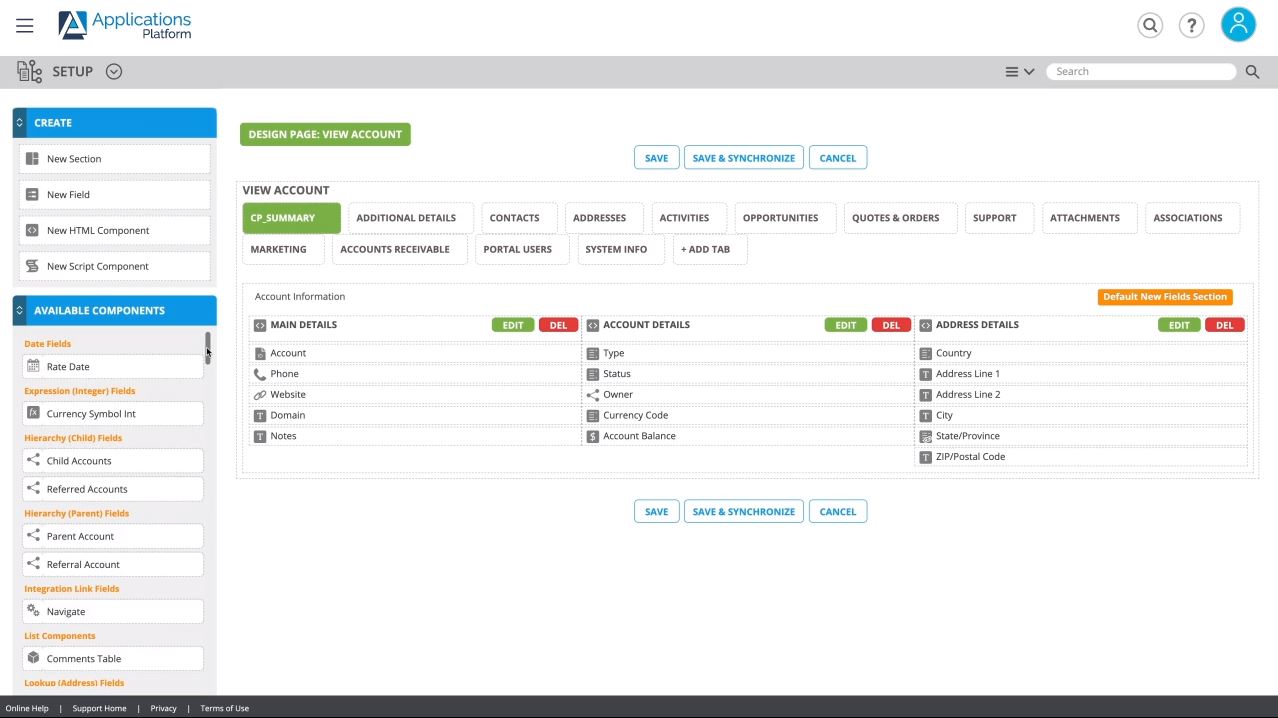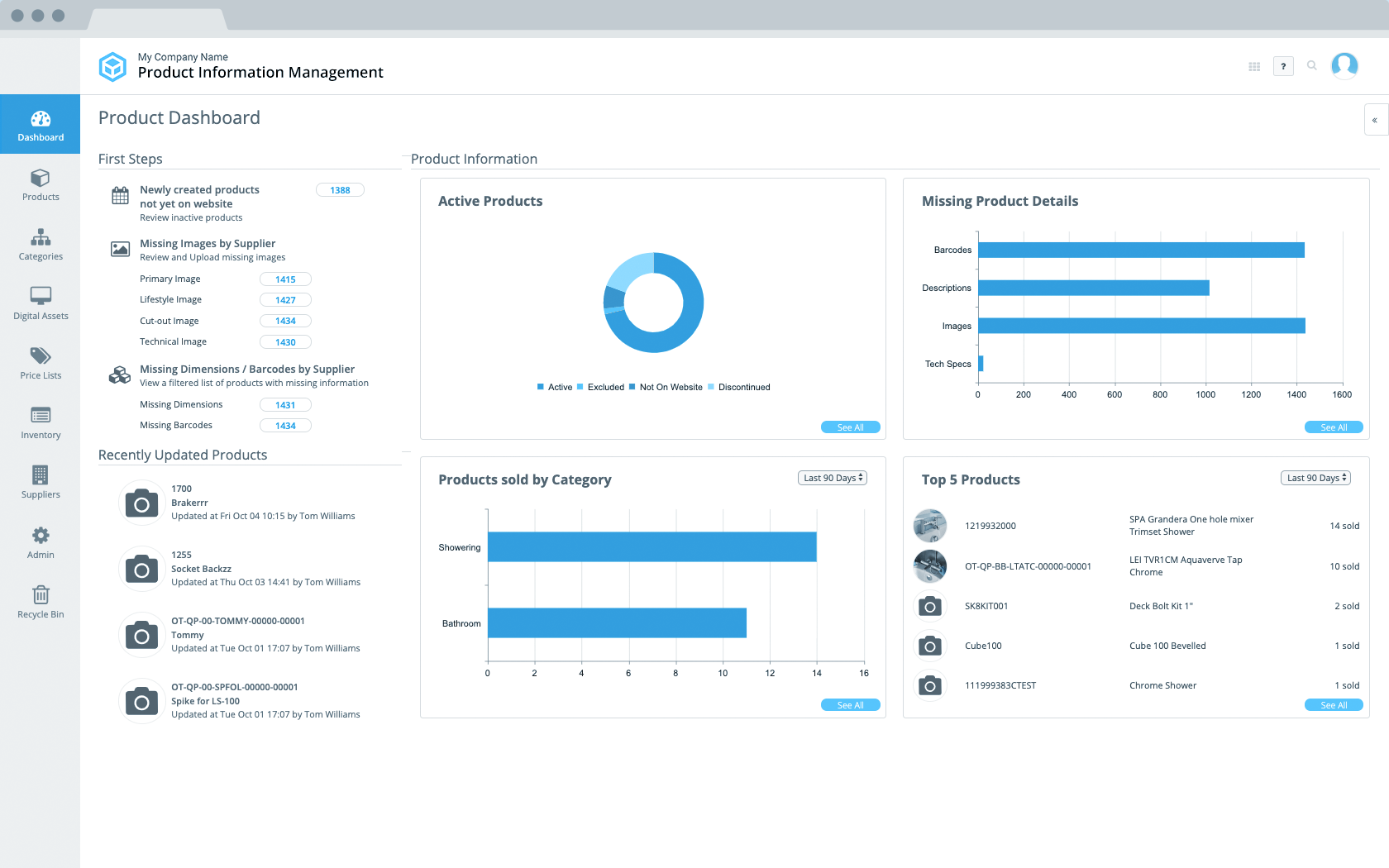Enterprise low-code explained
Enterprise low-code development platforms enable organisations to rapidly build and deploy applications with minimal hand-coding by using visual, drag-and-drop interfaces and pre-built components. Designed for large-scale business needs, these platforms accelerate application delivery, support complex workflows, and facilitate seamless collaboration between professional developers and business users.
Key features include robust integration capabilities, enterprise-grade security, scalability, and advanced governance tools, making them well-suited for delivering custom, secure, and scalable solutions across departments and environments.
An enterprise low-code platform can encompass a wide-range of sophisticated features and capabilities that provide productivity gains and added commercial opportunities. Identifying the functionality and flexibility that enterprise-level web applications offer can become a challenge faced by many CEOs and business leaders.
Forward thinking chief executives and decision makers are recognising the need to adapt to fast changing business environments and increasing customer expectations. In order to move swiftly to adjust to changes in business requirements and goals, progressive organisations are acknowledging the need to adopt business solutions that can be deployed quickly and cost effectively.
Low-code digital transformation platforms provide enterprise development solutions that accelerate time to market, reduce development times and provide consistency in business processes. As a result, low-code development is often referred to as a driving force in making organisations more agile, responsive and customer focused.
Typically, an enterprise low-code platform should include the following capabilities and functions for the enterprise development environment:
- Low code: Ensure at least 90% of applications built on the platform are either ‘code free’ or only contain simple scripts for field formulas etc.
- Quick create wizard: Walk through the steps required to build your application, intelligently add typical objects and relationships and assign attributes.
- Graphical User Interface (GUI): Create and scale online database applications visually in a drag and drop environment that allows you to incorporate structures, forms and reports, business logic and workflows.
- Scalable and Secure: Added enterprise level security for peace of mind; Secure Sockets Layer (SSL), Hypertext Transfer Protocol (HTTPS), encoded with Base64, single-sign on, password expiration policies and IP whitelists.
- Low-code integration: A dedicated, market proven integration tool to integrate existing on-premises and cloud-based business systems or applications to automate business processes via ODBC, OLEDB, Web Services or an extensive range of supported third-party APIs through connectors for an end-to-end experience.
- SMS functionality: SMS API to build SMS functionality directly into your applications for triggering business critical alerts or marketing communications.
- Cross platform compatibility: Ensure your applications are accessible 24/7, 365 days a year on any desktop or mobile device regardless of location.

Diagram: Enterprise low-code platform development example.
100% fit enterprise-level web applications
An increasing demand in low-code, agile and highly customisable enterprise applications means that organisations now have the tools readily available to quickly adjust their methodology and build custom applications that are a 100% fit to business requirements.
Low-code platforms provide an easy-to-use interface for organisations to build custom database applications which can be as easy as importing an existing Excel spreadsheet. Once your Excel spreadsheet has been imported into an enterprise low-code platform, an online database has been created. From here it’s a simple “point and click, drag and drop” exercise that allows you to build any number of database driven applications for the user to search, view and edit based on defined user permissions. Once the custom application has been built it can be embedded into your company website. Low-code development platforms make it that easy. It’s no surprise to see traditional bespoke development attitudes changing in favour of enterprise application development methodology.
Common enterprise application development project examples built by low-code developers include:
- Web portals: Customer portals, supplier portals, employee portals, product returns portal, trading partner portal, communications portal, customer service portal. More information can be found here: Web Portals.
- Asset management: Company car management, IT assets (computers, laptops, mobile phones etc.), Office management (chairs, desks etc.), record and track stationery, record and track inventory and stock.
- Sales management: CRM (accounts and contact management), opportunity logging, sales tracking, quoting app, activities management, sales and KPI reporting, job management, sales activity tracking. More information can be found here: Sales Management Application.
- Approval workflow: Purchase order approval, holiday or expenses approval, credit limit reviews, discount or price change approval, service quote approvals, credit note authorisations etc.
- Product information management (PIM): Electronic product catalogue, stock management, digital asset management etc. More information can be found here: PIM Application.
- Field service: Job and schedule management, quoting modules, job tracking, online payments, contractor and supplier management modules.

Image: Product Information Management (PIM) dashboard example.
Enterprise low-code benefits
Enterprise low-code platforms provide digital transformation solutions that streamline enterprise application development projects and business processes, quickly and effectively. Low-code development platforms provide enterprise organisations with the tools to build and scale applications effortlessly to meet specific requirements and improve business processes as and when required. Typically, the common low-code benefits for the enterprise organisation include:
- Quick go to market: Drag and drop tools enable you to build custom database applications quickly and easily to speed up time to market.
- Reduced development costs: Due to the speed in which an application can be built you will be able to build more apps in less time than traditional bespoke development, saving on development times and associated costs.
- Improved productivity: As your build time will be reduced it will enable employees to provide their expertise in other areas of the business as and when needed. Having an agile development platform means that business processes improve across the organisation and, as a result will streamline employee workloads.
- Agility: Add more modules, features and business logic, scale up or down to meet market changes and when business requirements dictate.
- Mobile-ready: Quickly deploy or access your custom business applications on any internet browser or mobile device, anytime, anywhere.
- Instant ROI: With the ability to develop more applications quickly, development times are reduced and, in return, reduce the costs of the application build. It also means that you will not need to hire additional developers to fulfil a project whilst streamlining employee tasks throughout the organisation.
The simplicity of low-code development opens endless opportunities for the enterprise organisation by allowing them to work efficiently and respond to fast changing business requirements. Enterprise low-code platforms provide a tool that requires less manual coding, therefore improving time to market and rapid application updates and configuration, as well as reducing development costs.
What to look for in an enterprise application development company
When deciding on which enterprise low-code framework to use there are several factors to take into consideration. On the face of things, low-code development platforms are very similar, but not all low-code vendors offer the same capabilities. Looking beyond low-code functionality on offer is a key factor in the decision-making process.
For example, most low-code development platforms will offer integration as an added benefit. However, not all of them will be able to include additional business logic, data transformation, or database monitoring, and may only be able to provide simple API calls. Enterprise-level integration solutions go beyond standard and will be able to seamlessly connect practically any data source regardless of being on-premises or cloud-based and automate any number of extended business processes.
To help you evaluate the right enterprise low-code platform to incorporate your app development strategy it’s worth making a note of the following factors to take into consideration.
- Ensure the enterprise low-code platform has the correct functionality e.g. Wizard-driven, flexible integration and automation (with both cloud-based and on-premises systems and applications), user friendly, mobile ready.
- Select an enterprise app development provider that understands integration with primary business systems such as ERP (SAP, Microsoft, Sage etc.).
- Check to see if the provider can provide you with a demo licence option.
- Ask to see their project scoping documentation.
- Check to see the level of built-in security features.
- Do they provide product training and support?
- Check for documented case studies.
- Ask how frequently they provide software updates and version release
For more information on choosing the right enterprise low-code platform that suits your business requirements read – What to look for in an enterprise app development company.
Enterprise app development services
The criteria for selecting an enterprise low-code platform that can deliver a true end-to-end solution can vary depending on your requirements. Enterprise app development services allow organisations to adjust the changes in business conditions quickly and effectively. However, choosing the right platform can be a challenge.
Applications Platform provides enterprise app development services suitable for companies of all sizes. It provides you with all the rapid application development tools you need to design, plan, develop, integrate and deploy custom online database applications that can quickly scale up or down to provide you with a 100% fit to fast changing business requirements.
Applications Platform provides you with enterprise low-code features that will future proof your business by turning your ideas in to customisable low-code applications:
Visual application builder
Visual application builder allows you to build online database applications using simple drag and drop components. In addition, you have the freedom to code in JavaScript and HTML if required.
Enterprise integration platform
Our enterprise integration platform allows you to connect to practically any data source via ODBC, OLEDB, Web Services or an extensive range of supported third-party APIs through connectors, and automate virtually any business process.
Low-code security:
Applications Platform provides industry standard low-code security features such as Secure Sockets Layer (SSL), Hypertext Transfer Protocol (HTTPS), encodes Base64, single sign on, password expiration policies and IP whitelists.
Deploy Applications Platform anywhere
Options for both private and public cloud provides you with greater control over data access and costs.
Fully responsive
Ensure end users receive relevant content on desktop, mobile and tablet services, anywhere, anytime.
Multiple delivery methods
Dynamically create and send notifications via email, SMS or compatible messenger APIs.
Professional Services
Two thirds of our enterprise customers don’t self-build, so we offer an ‘easy in, easy out’ professional services package that gives you complete control over your enterprise application development project. We breakdown complex development projects into sprints so that you can derive value whilst controlling spend. Please visit our Professional Services area for more information.
Further information of Applications Platforms’ low-code features can be found here: Applications Platform - Low-Code Features.
What's next?
For more information on Applications Platform and how it can help to transform your business, download the brochure below or call us on +44 (0)330 99 800 50 to get your project started.

